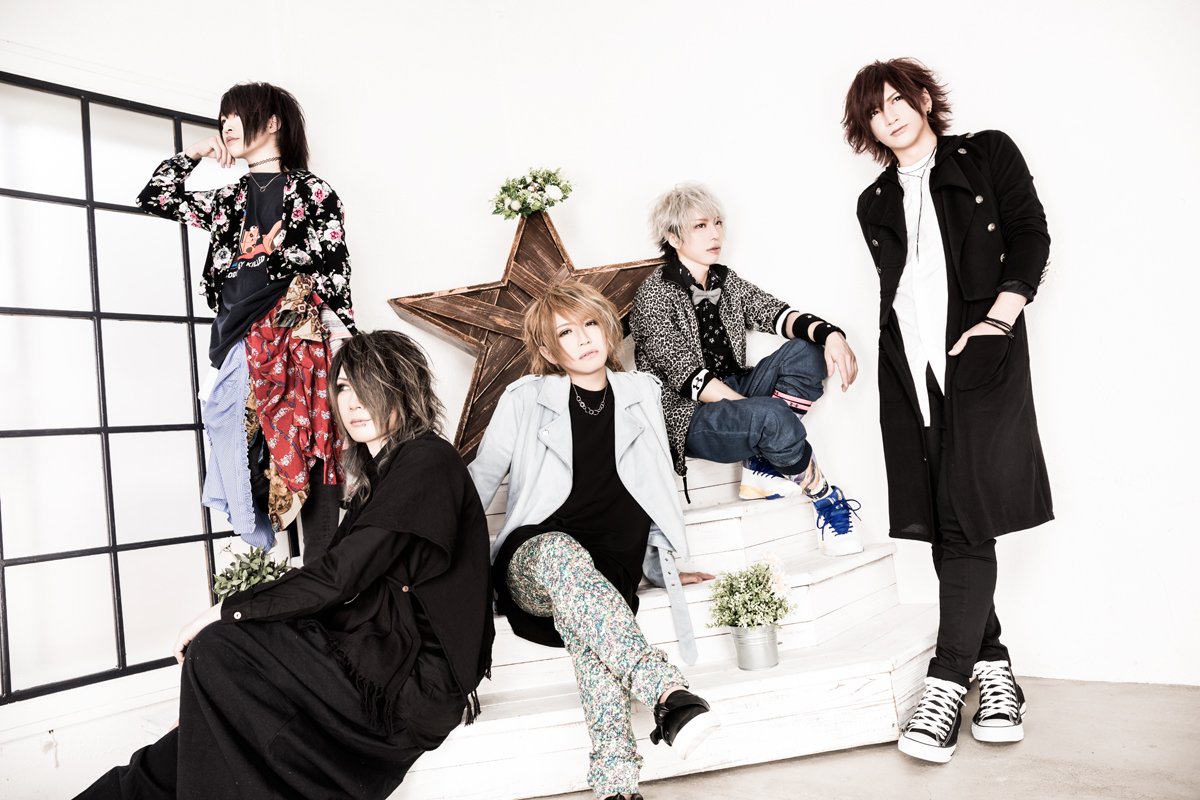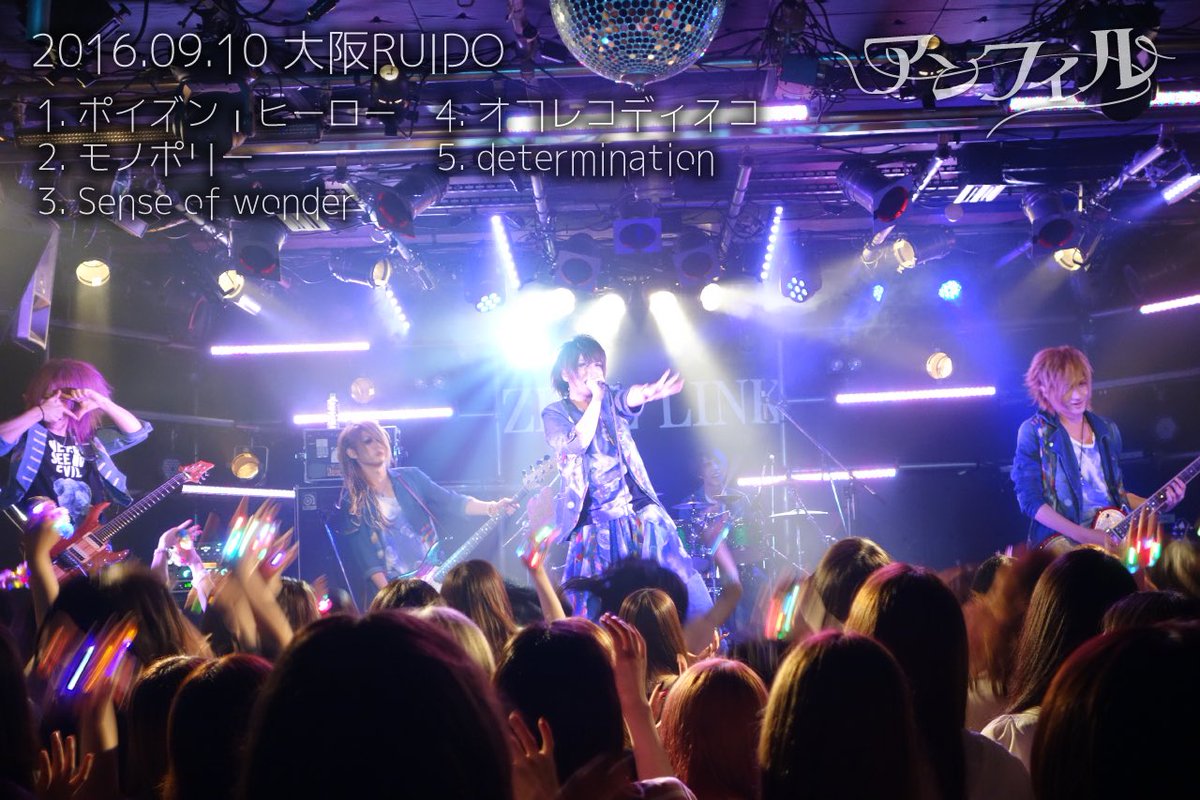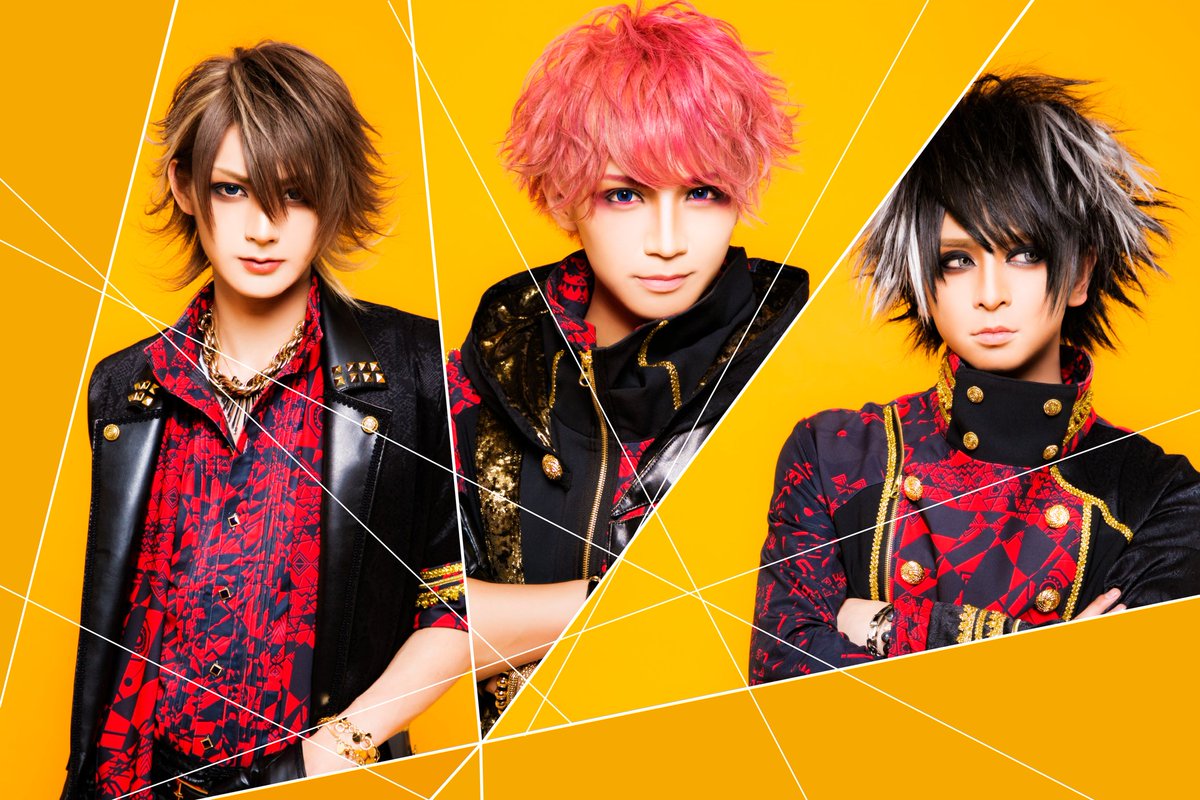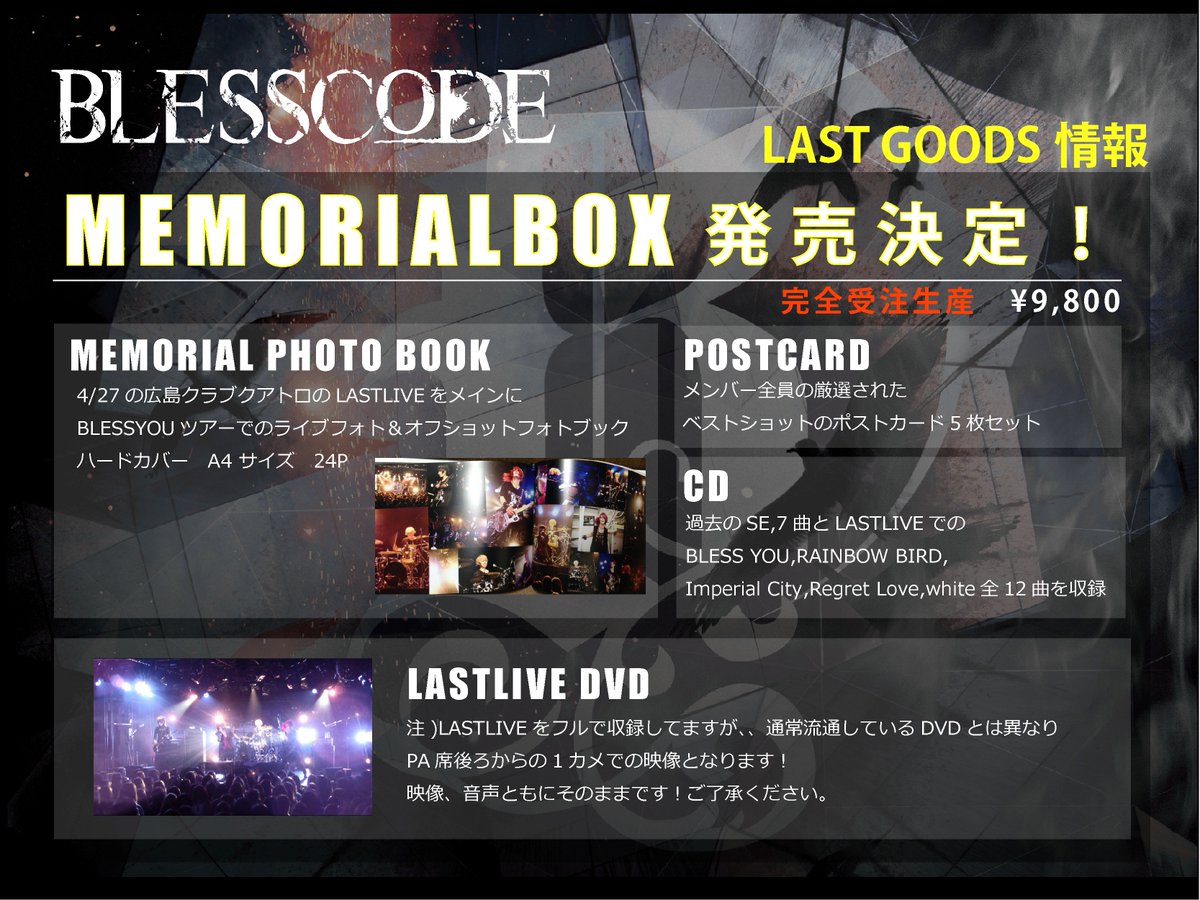-
Content Count
2945 -
Joined
-
Days Won
53
Posts posted by hiroki
-
-
LAGLESS will disband after their two-man live with unfate on 2017/08/16
-
Purple Stone will hold their fanmeeting/Fuma-sai at Kitahorie hills Pan-koujou on 6/28!!
Tickets sold out immediately when sales started but some people cancelled so you still can get them (but be quick)
-
-
Release postponed again to 6/14 x.x
-
-
20 minutes ago, WhirlingBlack said:And since the VK fandom is so heavily invested in their bands, when opinions clash it tend to lead to argument and people taking it as a personal insult. I don't think this is going to change any time soon so we just have to do our best to argue WHY we do/don't like something and then let everyone have a constructive debate.
Giving thought to why you like or don't like certain bands or music and then putting that opinion on the table--that's all well and good, and an essential part of any healthy music community. Most of the time though, I feel it's not so much the fact that there is someone out there who dislikes music that you love (these people exist no matter how popular/well-regarded a band is - and I think that's something everyone will have to accept); but rather, it's the way in which their opinions are expressed.
Anyone who has been on MH longer than 3 days would have realized that '"criticizing" a band here (for some people at least) means articulating your opinion in a way that's as offensive/tactless as the rules possibly allow for, even if the same point can be made as effectively without insulting anyone. And that's not counting posts that aren't even proper opinions (e.g. going into a thread of a band you simply don't care for and saying 'just disband now', or going into a disbandment thread and gloating over it).
So I kinda understand where OP is coming from. For the most part MH has been a valuable resource and a great community, although at times I wish people would actually spend more time on the bands they enjoy and leave the others alone if they have nothing valuable to say rather than just looking to provoke.
There's always the "let's just turn the other cheek" attitude, but while that's always appreciated (and necessary for staying sane on the internet), surely the responsibility for a mature/critical community doesn't lie squarely with these people if there are others bent on being intentionally inflammatory all the time.
-
-
I hope it's not something more serious. Hope he recovers soon!
-
can't help but feel that this whole debate is much ado about nothing

if you're living in japan and regularly go to lives then you're entitled to give your opinion on their lives. if you're an international fan who voraciously gobbles up all their releases (legally or not) then you're entitled to evaluate the quality of their recorded music. the problem only arises when this discussion bleeds into the neighboring terrain of 'how does one objectively judge a band's quality?' or 'what's the proper way of enjoying a band?'--which never fails to generate 5 pages of same old thing that impresses no one in particular...
then there's the question of how much instrumental value you are actually of to the band, which is related but entirely separable from the first. it's def true that the actual impact of someone ordering a 3000 yen album from CDJapan on the band is probably a lot less than they think, but that doesn't reduce the weight of their opinion on the band's recorded music. critics all over the world are paid to do exactly that: to give their opinions while remaining pretty much monetarily irrelevant.
-
-
-
ゴシップ(Gossip) new maxi single "『君があの世に...(kimi ga ano yo ni...)』家内説教-自主規制盤-" will be released through Village Vanguard on 2017/07/05 (2 TYPE).
Regular edition (1,620yen) will include CD only, and deluxe edition (10,800yen, limited 444) will include CD+goods
[CD track list]
01.悪童歌斉唱
02.『君があの世に…』
03.DARK RED MURDER CASE (included in regular edition)
03.DOWNWARD SPIRAL (included in deluxe edition)
04.家内説教-自主規制盤-


Their 2 new full albums "漆黒ノ闇(shikkoku no yami)" "吐愚弄(toguro)" will be released on 2017/09/20 and 2018/01/10 respectively



-
-
-
アンフィル(anfiel) announced at their presents live tonight that their new single "螢の瞳(hotaru no hitomi)" will be released on 2017/08/16.
limited edition will include CD+DVD, and regular edition will include CD only

-
oh dear, i hope he recovers fully!
-
37 minutes ago, Disposable said:So apparently from what I gathered this was very sudden and so far the hiatus is only till the end of 2017, and then they'll figure out whether they will continue or not?
I tried looking sum on tumblr, but unfortunately the individual member posts were only translated in Spanish.
The official announcement says that their hiatus will begin at the end of 2017, and it hasn't been decided when they will restart activities. There may be another announcement I'm not aware of though.
-
-
Axkey new single トゥエンティーフォーセブン("Twenty four seven") will be released on 2017/07/24.
A type (limited edition)
01. 24/7
02.ロストワン
03.D.I.D
B type
01. 24/7
02. ジャパニィズ・マジョリテイ

They will hold their one-man live at Ikebukuro Ruido K3 on 2017/08/08 and at Osaka Ruido on 2017/08/23.
-
On 2017/5/10 at 1:57 PM, chemicalpictures said:I think there's more to be said, but that gives a general idea. Or we could all be tripping balls, and Chiaki was just being gross for the shock value or something else. who knows...
Probably already an overstated point for some of us, but just in case we get the inevitable "BUT... did the writer/lyricist mean/intend this??" objection (thankfully we haven't) - there's a landmark essay called "The Intentional Fallacy" by Wimsatt and Beardsley that has argued quite persuasively that it's immaterial what the author had meant to say. All we have at our disposal is the text, and what matters are the various readings the text opens itself to and makes possible as it circulates across different times, spaces, languages. We're not interested in (and can never be) plumbing the depths of the author's consciousness, so that's not the point of exercises like this
 But if we really want to, we can satisfy ourselves with knowing that the band had knowingly alluded to Jean-Jacques Rousseau
But if we really want to, we can satisfy ourselves with knowing that the band had knowingly alluded to Jean-Jacques Rousseau 
As for the song itself: while I generally don’t have much of an intuition for this kind of lyrics (I’m sure most MH people have more meaningful things to say on the lyrics directly), I found a ton of interesting ideas in the previous posts that I feel I can say something about so allow me to briefly chip in with some of my thoughts. More than a detailed reading of the lyrics per se it's kind of a running “commentary” with some indications along the way (hopefully) on why/how these ideas might hook on to the lyrics.
I'll limit myself to making one longer comment and a shorter one. My longer point reads more like an extended footnote to @chemicalpictures's post so I'll put it under spoiler tags:
SpoilerFirst, the Rousseau reference in the song’s title is important because it haunts the song in numerous ways. @chemicalpictures has nicely summarized the “anti-Enlightenment" impulse of Rousseau in his post, which I’d like to extend a little. As a philosopher, Rousseau had prioritized the passions of the human being over the primacy of his/her reason or rational knowledge. This made Rousseau a notable figure of dissent in the intellectual milieu he lived – the period which historians today call the Enlightenment, or the age when mankind was beginning to think of itself as somehow “superior” to other entities, e.g. non-living things, animals, ‘barbarians’, etc., by virtue of the human’s allegedly exclusive capacity for reason (exemplary of this attitude is the Cartesian “I think, therefore I am”). Hobbes was of course one of the Enlightenment’s most influential expositors. In Rousseau's writings he had famously critiqued the pervasive Enlightenment notion that society (and with it, culture) is an unalloyed civilizing force; on the contrary, he believes, society is the very thing that corrupts the tabula rasa of the human individual. (Tangentially, this also means Rousseau deviates from the Christian doctrine of original sin – a move that would influence many secularization movements subsequently.)
Already at this point, we can see how this debate between Rousseau and his contemporaries relates to several aspects of the lyrics: recurring images of cannibalism (from our standpoint, it’s probably difficult to imagine a more explicit form of “savagery” than this), guilt (I’ll follow up on what @chemicalpictures was saying on this point), morality (the ideas of ‘sin’, religion), the associated notions of a ‘crime’ and of ‘law’, etc. These aren’t disparate ideas; if anything they feed off one another and are interweaved into the very texture of the lyrics/PV.
It’s possible to propose that the lyrics are simply a rejection of Rousseau’s nostalgic romanticism which affirms the good nature of mankind, in favor of Hobbes’ rather pessimistic view of human nature that human beings who are left to their own devices in the state of nature would end up killing and eating one another. There’s no doubt the lyrics lend themselves to this reading immediately, but let's push it further.
One way to think about this whole business about cannibalism and the language of morality with the benefit of historical hindsight would be to say that the way in which cannibalism was conceived underwent a transformation at the precise historical juncture of the Enlightenment. Before the Enlightenment, cannibalism was thought of merely as a means of survival (manuscripts from 'pre-legal' Middle Ages communities support this widespread belief), and indeed this idea of ‘survival’ became exceptionally important for political philosophers writing in the aftermath of post-Restoration Europe (which were extremely messy circumstances even by today’s standards). Hobbes’ Leviathan, of which Rousseau was critical, was in many ways the touchstone of modern conservative thought in the sense that it seeks to justify a strong central political authority founded to protect human beings from the brutalities (again: cannibalism, murder, crime, etc. come to mind) of unregulated anarchy. An important step in Hobbes’ rather complex argument made in the name of the species' "survival" is to frame cannibalism as a crime that every rational human being ought not to commit. Put differently, the Enlightenment thinkers did not suddenly notice a pre-existing crime (e.g. cannibalism) and then belatedly come up with the language of law to “describe” and contain its criminality; they prescriptively MADE cannibalism into a crime through the language of law when it previously wasn't.
Reading the lyrics through these lenses means we’re confronted with the huge question of the origin of morality that would occupy many later philosophers. On this point Sigmund Freud’s Totem and Taboo (1913) is instructive. Notice that in his description of the "first crime", Freud too wound up trading in the concepts of crime, morals, guilt, etc. But most fascinating of all, the motif of ‘cannibalism’ returns quite forcefully here (so in a sense, we still haven't really left the lyrics....). I quote:
QuoteOne day the brothers who had been driven out came together, killed and devoured their father and so made an end of the patriarchal horde. [. . .] Cannibal savages as they were, it goes without saying that they devoured their victim as well as killing him [. . .] The totem meal, which is perhaps mankind's earliest festival, would thus be a repetition and a commemoration of this memorable and criminal deed, which was the beginning of so many things - or social organisation, of moral restrictions and of religion. (203)
And on the next page, 'guilt' appears:
QuoteAfter they had got rid of him, had satisfied their hatred and had put into effect their wish to identify with him, the affection which had all this time been pushed under was bound to make itself felt. It did so in the form of remorse. A sense of guilt made its appearance, which in this instance coincided with the remorse felt by the whole group. The dead father became stronger than the living one had been - for events took the course we often see them follow in human affairs to this day. (204)
In an uncanny way, the lyrics suddenly seem a lot like a twisted, condensed version of human history. I quote Freud only to quickly defer to Jacques Derrida’s reading of these important passages in his essay “Before the Law.” In his usual provocative manner, he tells us that:
QuoteThe murder fails because the dead father holds even more power […] Thus morality arises from a useless crime which in fact kills nobody, which comes too soon or too late and does not put an end to any power; in fact, it inaugurates nothing since repentance and morality had to be possible before the crime. (198, author's emphasis)
In other words—and this is the crucial point—if Freud’s murder of the primal father had inaugurated the idea of crime together with the associated notions of “morality” and “religion,” and that there was no such thing as a ‘crime’ before this point in history, why did his sons even feel guilty in the first place? Where did this guilt come from? At this point we find ourselves at an impasse where we’re forced to either accept that morality has no definitive origin (or more severely, doesn’t ‘exist’) save for its articulation in the language of law (this is problematic for people who want some definitive grounding to ideas of ‘good’, ‘evil’, etc. or legal theorists that want to affirm some kind of 'natural rights'), or that morality is not only primordial but is always in excess of language, of any narrative, of any history (which is equally problematic for any moral philosophy or concept of law that makes any claim to ‘capture’ morality perfectly).
More can be said, which I won’t, except to say that these shocking ideas (and really, what’s more shocking than to destabilize our conventional view of morality so radically?) open the lyrics up in many interesting ways. For instance, one can read the line 罪が罪を溶かしてゆく as envisioning a very different kind of morality from the kind of legal arrangement today where we rely on institutions to neutralize crimes via the force of law (let's not forget that the law is capable of this only through asserting its own 'violence'). Also, the whole 'playfulness' or even capriciousness in the lyrics mirrors Freud's carnivalesque 'totem meal', the earliest festival that commemorated the first crime (see quotation above). On all these points, the lyrics invite us to interrogate ideas we feel strongly about on this long detour.
Again, regardless if Chiaki had intended it or not (pretty sure he hasn't read Freud or Derrida!), I submit that the lyrics here share many implicit concerns with the trajectory of ideas laid out above.
And the shorter remark: I was going to comment on the ‘doppelganger’ effect in the lyrics (everyone who has said something so far has noticed a kind of echo, repetition, or doubling that takes place in the lyrics) but this post is long enough so I'll keep it to a few words:
In Rousseau’s philosophy, he makes a distinction between what he calls amour de soi (love of the self) and amour-propre (self-love). “Love of the self” is a regard for self-preservation independent of what other people might think or feel about me, while “self-love” is a ‘corrupted’ version which arose because we desire other people to see us in a particular way. This is related to the whole "passage from savagery to civilization" narrative that the Enlightenment was obsessed with (for Rousseau, “self-love” only emerged in a “civilized” society where we're compelled to enter into social/political relationships with other people) – but more important for our purposes is how this “self-love” operates on the basis of a kind of split subjectivity. What I mean is that Rousseau’s “self-love” assumes not one but two “I”, one that other people see and we want to make look good, and a more interior/primitive “I” behind the screen that’s making this judgment in advance and dressing up the first "I", as it were. In Chiaki’s lyrics we find a series of echoes: “デキタ。” (in Katakana) becoming “できた。” (Hiragana) – a repetition but in a different script – almost like a different (/same?) person repeating the same words. Also, the line “僕は「僕」と君とディナー” is precisely this doubling of the self that Rousseau’s “self-love” gestures towards: an (authentic) I, and a (spectral) “I” that exists as a second-order construction in language, set typographically here in quotation marks.
-
that's so awful to hear. i hope he recovers soon T_T
-
omg!! that's such huge loss for them T______T
-
Haven't updated in a while, but the band has been touring extensively. Hopefully there will soon be news of new music as well!!
Here are some interesting events coming up:
2017.05.21 - Kansai Rock Summit, the biggest VK 'festival' in Kansai. Purple Stone will be up at JANUS, from 14.30~15.00
2017.05.30 - Purple Stone oneman live at RUIDO K4. This is also keiya's birthday's live and it's so rare that they're doing it in Tokyo so pls go see them if you can!!

2017.06.20 - A two man live with Megalo (a non-vk rock band) at Osaka Muse. I think Megalo's members are Fuma's close friends that's why they're doing this! Regardless, it's pretty unusual to have a two-man like this so I'm sure it'll be fun!
2017.07.10 - A special '6-man' event at Nagoya's Club Quattro, featuring 3 from Osaka and 3 from Nagoya. Purple Stone is part of the Osaka 'team' together with Fest and RiR
2017.07.22 - Kamijo's birthday live
Apart from these they're on the stylish wave '17 Circuit tour with some other really good bands in the lineup!
-
i really like this T____T






LAGLESS will disband
in News
Posted
no idea